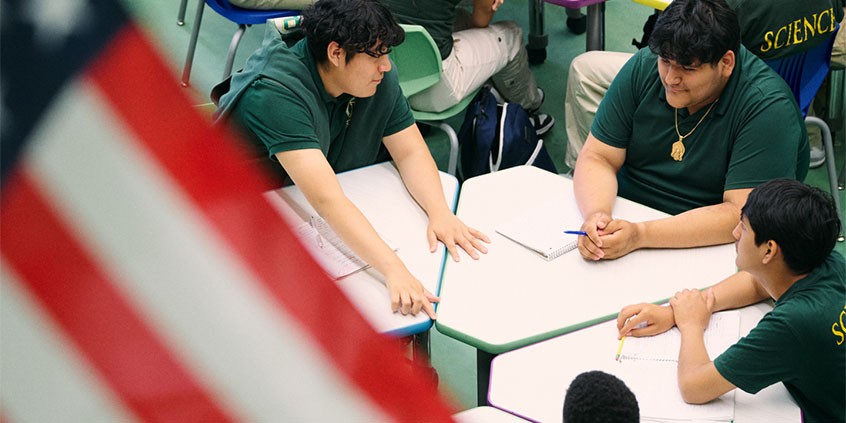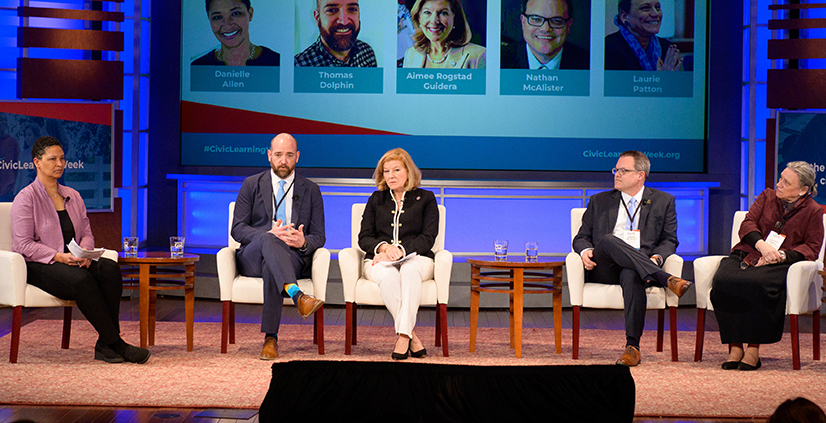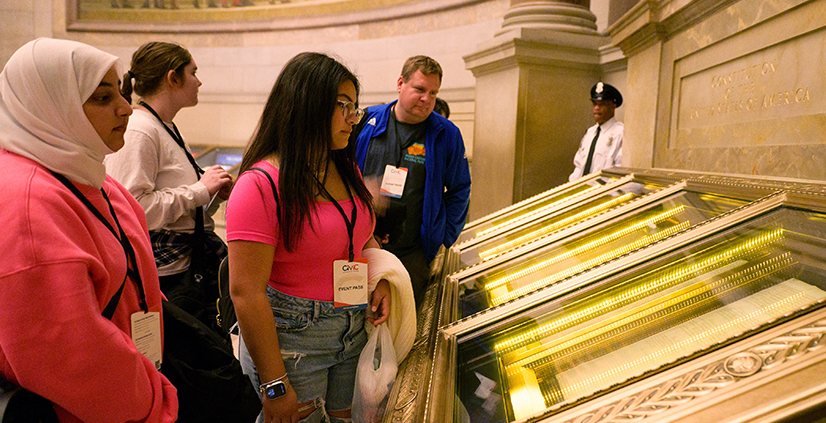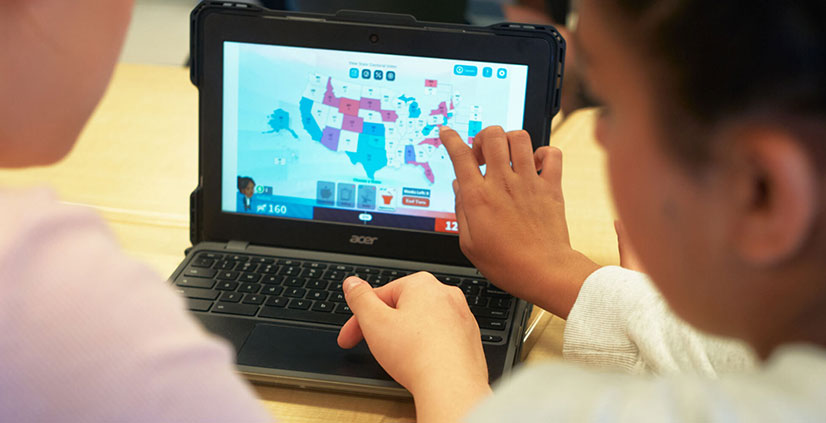|
STATE POLICY MENU
Build In Assessment and Accountability
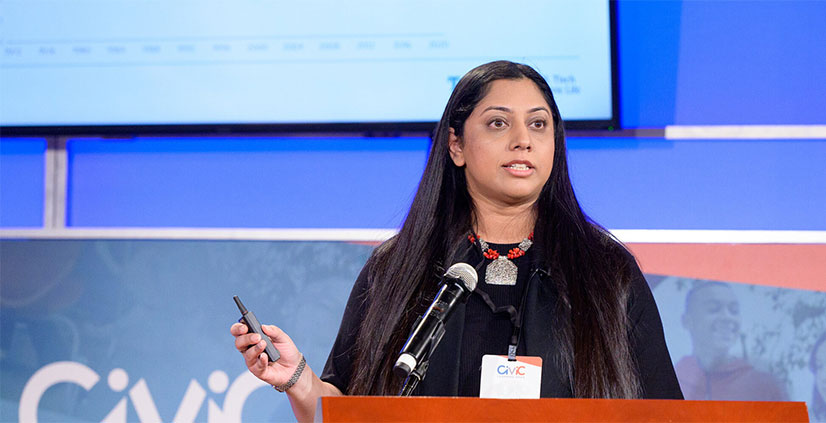

Challenge
Civic learning is not meaningfully included in most states’ assessment and accountability systems, arguably the leading cause of the erosion of time and attention to civic education. Simply put, “if it isn’t tested, it isn’t taught,” and “if you can’t measure it, you can’t improve it.”
Solution
Civics must be assessed authentically and regularly. Ensure that assessments consider a student’s civic knowledge and skills, and that school and state agency accountability measures are in place.
State Policy Options
Student Assessment
- Offer civics courses at upper elementary, middle, and high school levels, with instructionally embedded assessments, including in-class activities, projects, presentations, assignments, or exercises that provide data about specific learning outcomes to improve instruction.
- Require that students engage in project-based learning and/or field- or community-based activities such as service-learning or showcases and simulated competitions—as alternative forms of assessment at the middle and high school levels. These projects may be thought of as a “civics lab,” similar to laboratory work in science classes.
- Require a civic learning plan from every Local Education Agency (LEA) and aggregate LEA civic learning plans to allow comparisons and assessments of progress, permitting the reporting of results disaggregated by demographic subgroups. It is important to disaggregate civics assessment and accountability data to ensure equal access and address inequitable outcomes.
- Integrate civic learning plan data within school performance indicators and participate in the National Assessment of Educational Progress (NAEP) in civics and history.
Accountability for State Education Agencies
- Include civics assessments in ESSA (Every Student Succeeds Act) plans submitted to the U.S. Department of Education.
- Participate in the National Assessment of Educational Progress (NAEP) in civics and history to allow for disaggregated results by state.
Examples
CivxNow coalition state affiliate DemocracyReady NY Coalition’s Developing Digital Citizens offers recommendations to strengthen K–12 media literacy education in New York.
The New America Foundation’s media mentor program implemented in Maryland and Illinois is worthy of replication across states.
Resources
For one-to-one support and/or technical assistance, please contact our state policy staff.

